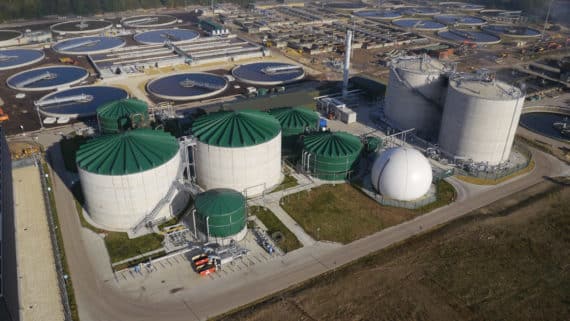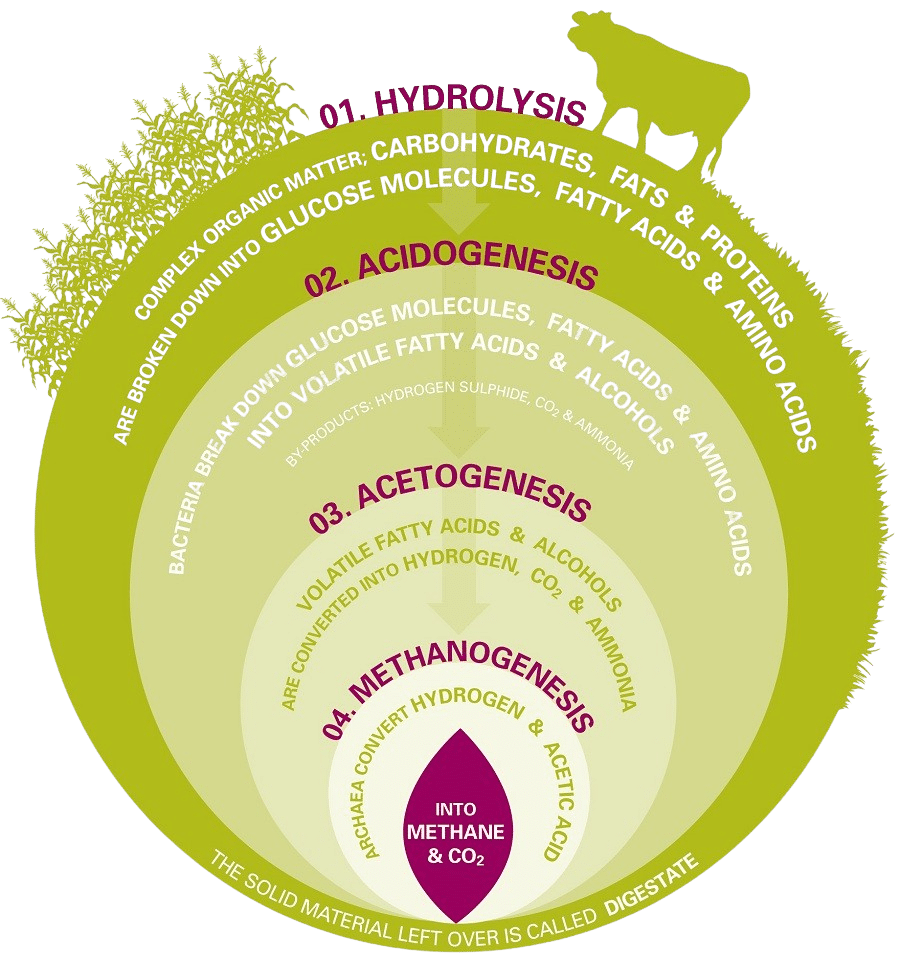Photo credit: Dr Ifeyinwa Rita Kanu
Here’s what happens… Organic matter, known as ‘feedstock,’ is processed through anaerobic digestion (AD) – ie deprived of oxygen – in a container called digester, where it breaks down into gas and a solid residue . Feedstock can come from a variety of sources such as food waste, farm waste and sewage, to name a few. AD plants can be standalone for industrial purposes (for example, food waste treatment plants), on-site (for example on-farm plants) or micro-digesters. The four main stages of the process are hydrolysis, acidogenesis, acetogenesis and methanogenesis. Each stage breaks the matter into smaller and smaller parts. The process generates a mixture of methane and carbon dioxide gases (biogas), water and a valuable biofertiliser known as digestate, a stable, nutrient-rich substance.

All AD systems produce biogas that can be used in a number of beneficial ways. Raw biogas can be used to generate heat and electricity, to produce hot water and steam, or as an energy source to provide refrigeration. By removing the carbon dioxide and impurities of biogas it is upgraded to biomethane. Biomethane can be injected into the existing gas grid for industrial or home use. Alternatively, in compressed or liquified form, biomethane can be used as a transport fuel.
Digestate is a stable, nutrient-rich substance and can be used for a range of products and purposes: most usefully as a fertiliser, rich in nutrients. Water, after treatment within the AD process, may be returned to the watercourses.
AD is a ready-to-use technology capable of decarbonising some of the UK’s trickiest sectors immediately. At its full potential, where all available organic wastes are anaerobically digested, the industry will offer numerous socio-economic and environmental benefits – the creation of green jobs, diversification of rural incomes, improved food and energy security, restoration of soils, to name a few – all while cutting annual UK emissions by 6%.
And for the industry to achieve its full potential, it needs government support.




